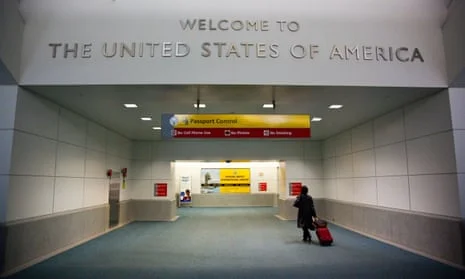
Trump-Era Tensions Cool Travel: Fewer Europeans Visit US While Americans Worry Abroad
A sharp shift is rippling through international tourism as President Donald Trump’s policies and rhetoric reshape the way travelers feel about crossing borders, both into and out of the United States. Recent data highlights a significant decline in European visitors to the US, while anecdotal reports reveal American anxieties about their international image. The resulting downturn is sending shockwaves across travel industries on both sides of the Atlantic, threatening a multi-billion-dollar sector just as global recovery from the pandemic picks up pace.
Evidence of this new chill is mounting. Official statistics show UK residents visiting the US fell by a striking 14.3% in March compared to last year, with a 17% drop in Western European visitors overall. Germany and Spain saw plunges of 28.2% and 24.6% respectively. Some observers point to the effect of Trump’s protectionist rhetoric—his claims of being “cheated” by other countries, widely publicized deportations, and toughened entry protocols—as drivers of a sense of unwelcome among potential tourists.

Not only are travelers wary—tour operators and governments are responding too. Following the controversial detention of British backpacker Rebecca Burke, the UK and German governments updated their travel advisories for the US. Across the industry, a recent TTG poll found that two-thirds of travel agents report a clear downturn in US-bound bookings. Jan Freitag of CoStar predicted that, with the strong dollar and unfriendly climate, "we’re going to continue to see travel numbers below 2019, maybe even decelerating from 2024."
Events on the horizon, such as the 2026 World Cup and the 2028 Los Angeles Olympics, add another layer of urgency. As David Edwards from Scattered Clouds consultancy warned, “If there is even a remote chance [tourists] will not be able to make it into the country, why take the risk?” The worries now stretch beyond leisure travel, with looming threats to business travel and potential airline route cuts if the trend continues.

The tension, however, is not just inbound. Reports from tour operators like Raj Gyawali of Kathmandu-based socialtours note that American travelers themselves are increasingly nervous abroad. Gyawali observed cancellations from U.S. clients who felt unsafe traveling internationally during Trump’s administration, mirroring pressure from European nations now advising certain citizens—especially trans and non-binary—to avoid US trips.
American travelers such as Sierra Malone and Lisa VanderVeen articulated their fear of “backlash” or of being seen as ambassadors for policies they do not support. “Last time [Trump was in office], it felt embarrassing; this time it feels terrifying,” Malone remarked ahead of a move to Europe. New data from YouGov backs these sentiments: across seven major European countries, the favorability of the US fell by as much as 28 percentage points since Trump’s return to office, reaching historic lows in Denmark, Germany, and France.

Tourism experts are urging proactive strategies instead of reactive ones. While US arrivals to Europe remain strong for now, Raj Gyawali anticipates more cancellations, advising colleagues to address American travelers’ concerns with open communication and empathy. Etiquette experts recommend authenticity over hiding one's nationality, but also greater mindfulness in navigating sensitive situations abroad.
With major global sporting events looming and neither side immune from the climate of suspicion and uncertainty, the world’s once-boundless traffic of tourists faces unpredictable headwinds. As the industry debates how to adapt, travelers and operators alike are being forced to rethink not just their routes, but the welcome they’ll find.
Will these negative trends continue, or will the tourism world discover new ways to bridge divides and restore confidence? Readers, have you changed your own travel plans in response to global politics? Share your thoughts in the comments below.